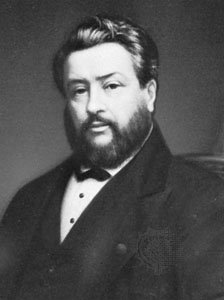Let us, then, understand the calling whereby they become elected,— not those who are elected because they have believed, but who are elected that they may believe. For the Lord Himself also sufficiently explains this calling when He says, "You have not chosen me, but I have chosen you" (John 15:16). For if they had been elected because they had believed, they themselves would certainly have first chosen Him by believing in Him, so that they should deserve to be elected. But He takes away this supposition altogether when He says, "You have not chosen me, but I have chosen you." And yet they themselves, beyond a doubt, chose Him when they believed on Him. Whence it is not for any other reason that He says, "You have not chosen me, but I have chosen you," than because they did not choose Him that He should choose them, but He chose them that they might choose Him; because His mercy preceded them according to grace, not according to debt.
Therefore He chose them out of the world while He was wearing flesh, but as those who were already chosen in Himself before the foundation of the world. This is the changeless truth concerning predestination and grace. For what is it that the apostle says, "As He has chosen us in Himself before the foundation of the world" (Ephesians 1:4)? And assuredly, if this were said because God foreknew that they would believe, not because He Himself would make them believers, the Son is speaking against such a foreknowledge as that when He says, "You have not chosen me, but I have chosen you;" when God should rather have foreknown this very thing, that they themselves would have chosen Him, so that they might deserve to be chosen by Him.
Therefore they were elected before the foundation of the world with that predestination in which God foreknew what He Himself would do; but they were elected out of the world with that calling whereby God fulfilled that which He predestinated. For whom He predestinated, them He also called, with that calling, to wit, which is according to the purpose. Not others, therefore, but those whom He predestinated, them He also called; nor others, but those whom He so called, them He also justified; nor others, but those whom He predestinated, called, and justified, them He also glorified; assuredly to that end which has no end.
Therefore God elected believers; but He chose them that they might be so, not because they were already so. The Apostle James says: "Has not God chosen the poor in this world, rich in faith, and heirs of the kingdom which God has promised to them that love Him?" (James 2:5).
By choosing them, therefore; He makes them rich in faith, as He makes them heirs of the kingdom; because He is rightly said to choose that in them, in order to make which in them He chose them. I ask, who can hear the Lord saying, "You have not chosen me, but I have chosen you," and can dare to say that men believe in order to be elected, when they are rather elected to believe; lest against the judgment of truth they be found to have first chosen Christ to whom Christ says, "You have not chosen me, but I have chosen you" (John 16:16) [Saint Augustine on Sovereign Predestination, Book I Chapter 34]
When Christians Contemplate Assisted Suicide
7 hours ago





No comments:
Post a Comment
Please leave a comment!